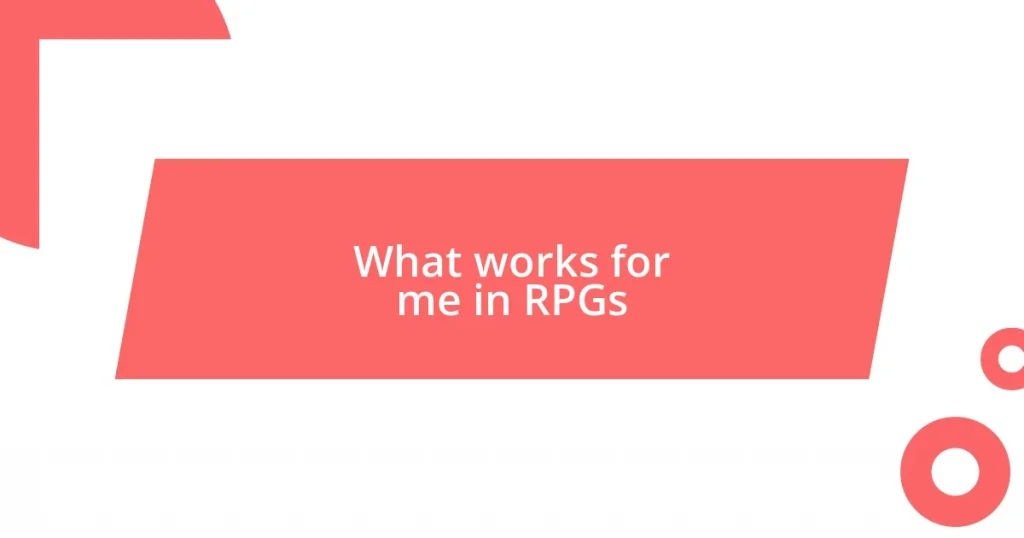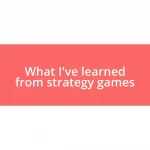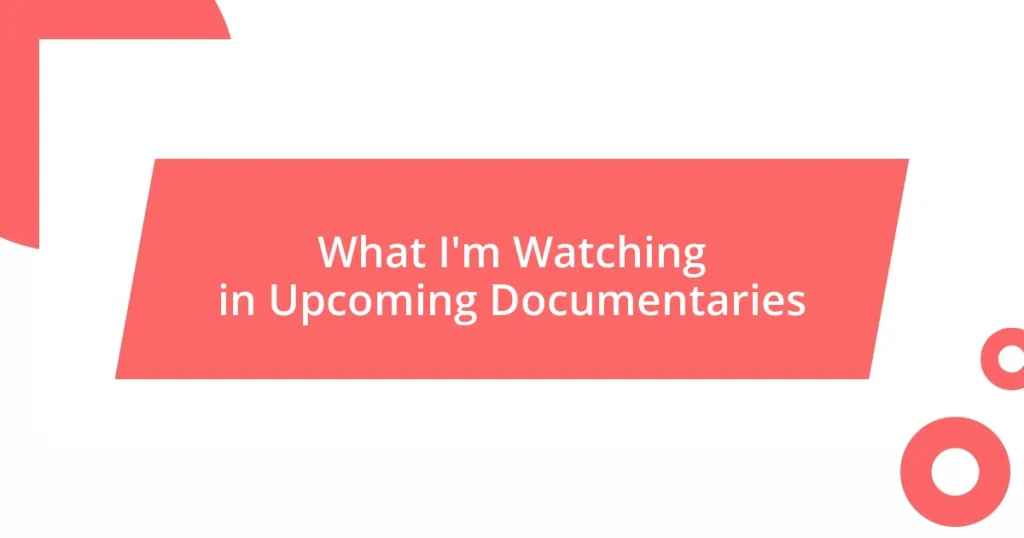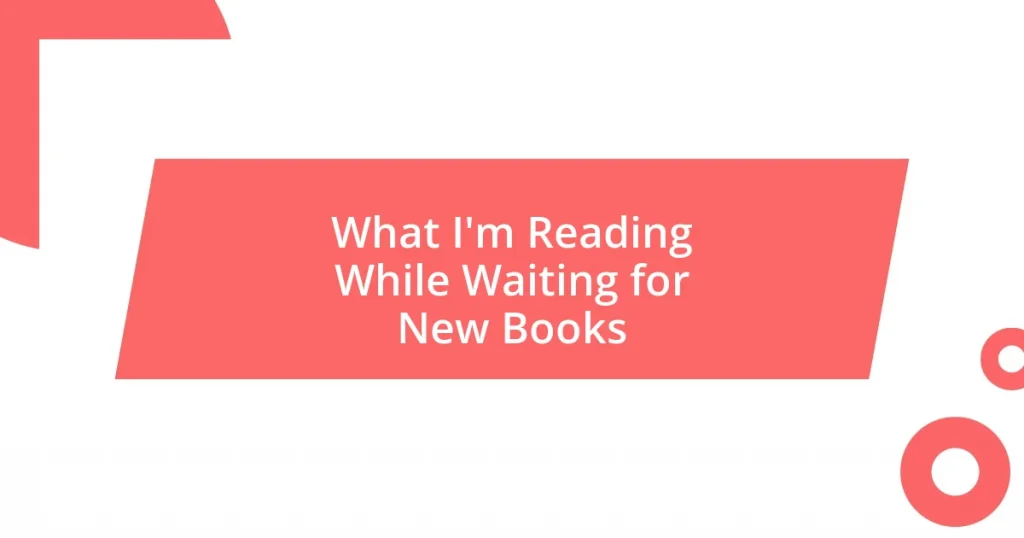Key takeaways:
- RPG mechanics significantly influence player experience, including decision-making, resource management, and character progression, creating emotional connections to the game.
- Choosing a character class that aligns with one’s playstyle enhances gameplay and team dynamics, making collaboration more effective in achieving objectives.
- Adapting to different Game Master styles and reflecting on gameplay experiences fosters personal growth and deeper connections among players, leading to memorable narratives.
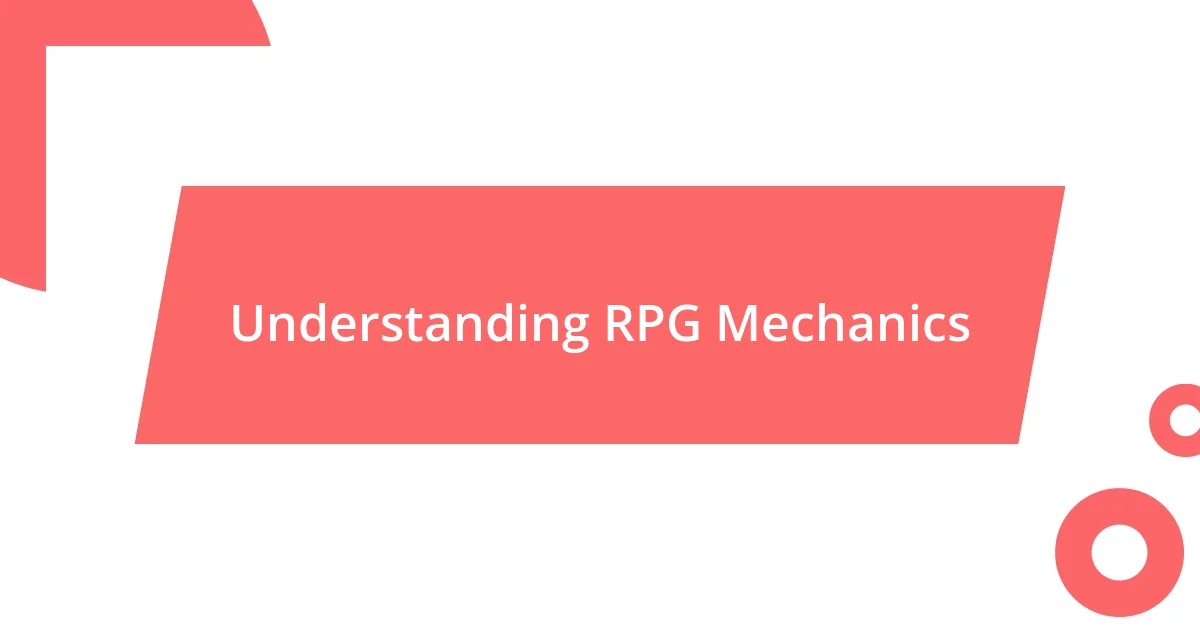
Understanding RPG Mechanics
Mechanics in RPGs form the backbone of gameplay, shaping how players interact with the game world. I remember the first time I rolled a die to determine the outcome of my character’s fate; the rush of excitement and dread was palpable. Isn’t it fascinating how a simple roll can turn a mundane decision into an epic moment?
Different RPG systems employ varied mechanics, often reflecting the themes of their worlds. For instance, in a fantasy setting, I’ve found that resource management mechanics can create tension and strategy. Have you ever felt that thrill while hoarding supplies, knowing that every choice could mean survival or failure?
Character progression is another area where mechanics shine. I’ve always enjoyed the sense of growth that comes from leveling up and acquiring new abilities, almost like a badge of honor for the challenges faced. Doesn’t that feeling of evolving your character add a personal connection to the game, making every session feel significant?
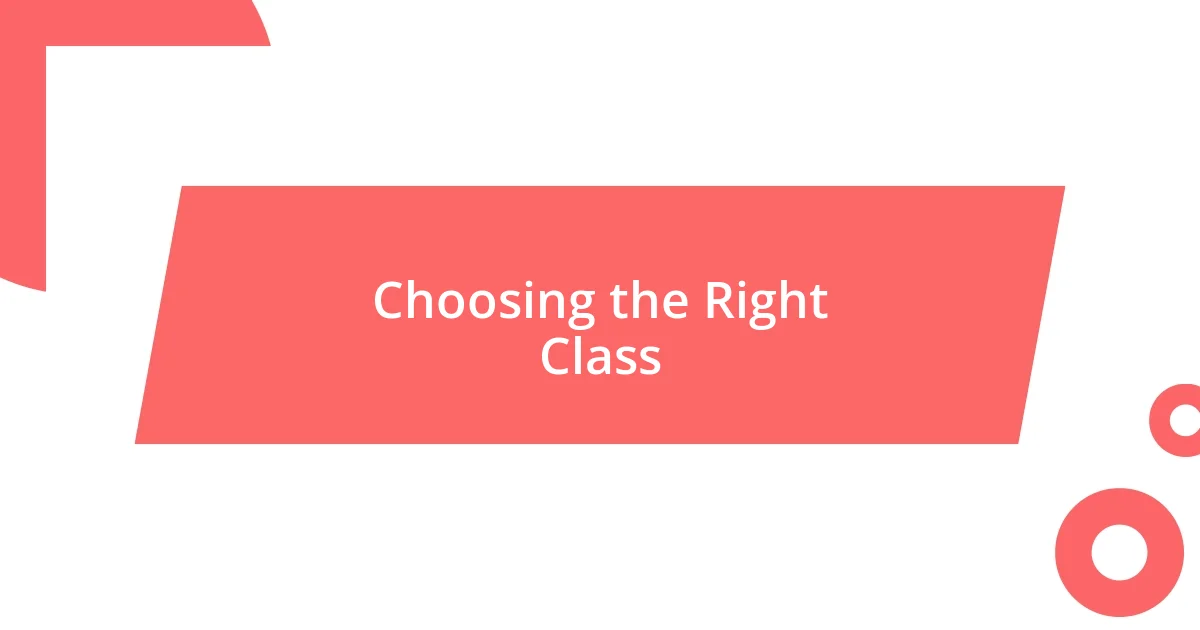
Choosing the Right Class
Choosing the right class in an RPG can feel overwhelming, especially with so many options available. I recall spending hours deliberating between a wizard and a rogue, torn between my love for powerful spells and the thrill of stealth. Ultimately, it’s about playing a character that resonates with you; the joy comes from embodying that persona, whether it’s a fierce warrior or a cunning trickster.
When I look back at my gaming sessions, I realize that the best choice often aligns with my playstyle. For example, as a more strategic thinker, I gravitated towards classes that demand careful planning, like a spellcaster. Have you ever noticed how the class you choose can dramatically influence not just your gameplay, but also your relationships with other players? It’s incredible how a supportive healer can change the dynamics of a group adventure.
To make a well-informed choice, it helps to explore how each class contributes to the team. Some excel at damage dealing, while others provide crucial support or control over the battlefield. Knowing these distinctions can elevate your gameplay experience. Do you often switch classes, or do you stick to one that feels just right? Personally, I’ve found that committing to a class allows me to dive deeper into its intricacies, enhancing both my character and my connection to the game.
| Class Type | Playstyle |
|---|---|
| Warrior | Frontline combat, high durability |
| Wizard | Spellcasting, strategic decision-making |
| Rogue | Stealth, agility, surprise attacks |
| Healer | Support, resource management |
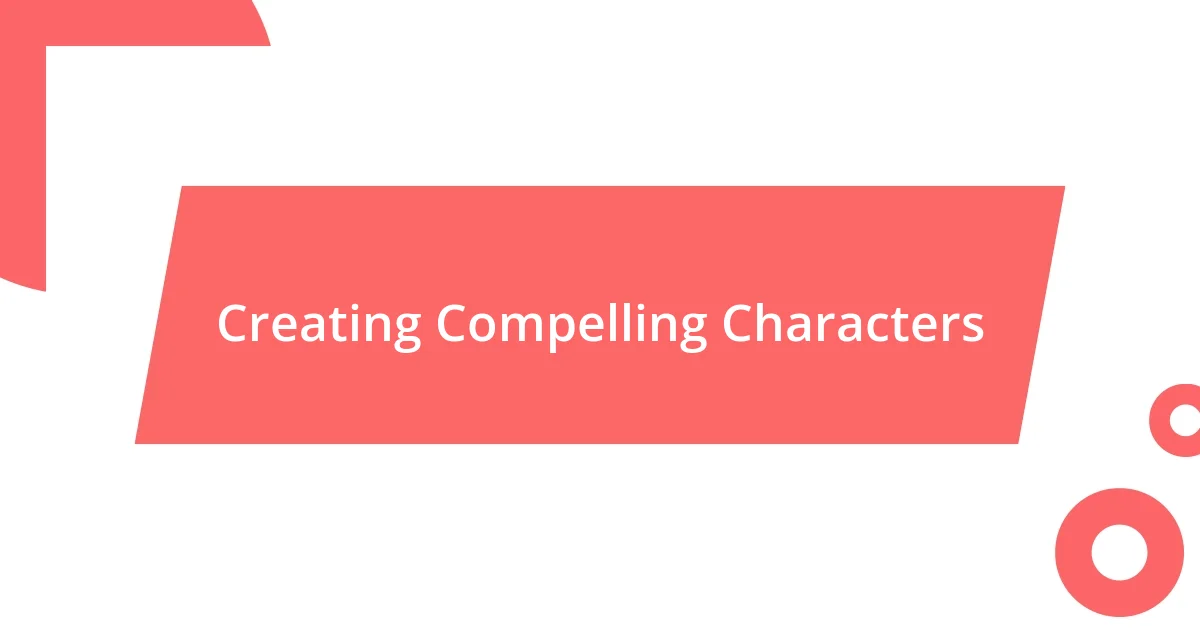
Creating Compelling Characters
Creating unique and compelling characters has always been at the heart of my RPG experiences. I remember vividly the first time I fleshed out my character’s backstory; it was a combination of joy and anxiety as I tried to imagine every detail. I felt a connection to this persona, pulling me deeper into the narrative. It’s amazing how a well-crafted character can evoke emotions from not just you, but the entire group.
To develop an engaging character, consider the following aspects:
- Backstory: A rich history gives your character depth and motivation.
- Flaws: Imperfections make them relatable and realistic.
- Goals and Dreams: These drive your character’s actions and can evolve during the game.
- Relationships: Developing bonds with other characters enriches interactions and can lead to exciting drama.
- Personality Traits: Defining quirks and behaviors brings your character to life.
I’ve always found that working with a buddy to develop my character further enhances the experience. Once, a friend and I created rival characters with intertwined destinies, leading to surprisingly emotional moments during our sessions. It’s incredible how these shared narratives shape not just the story but our friendships too. Have you ever experienced a moment when an unexpected choice changed your character’s trajectory? That’s the magic of character creation, isn’t it?
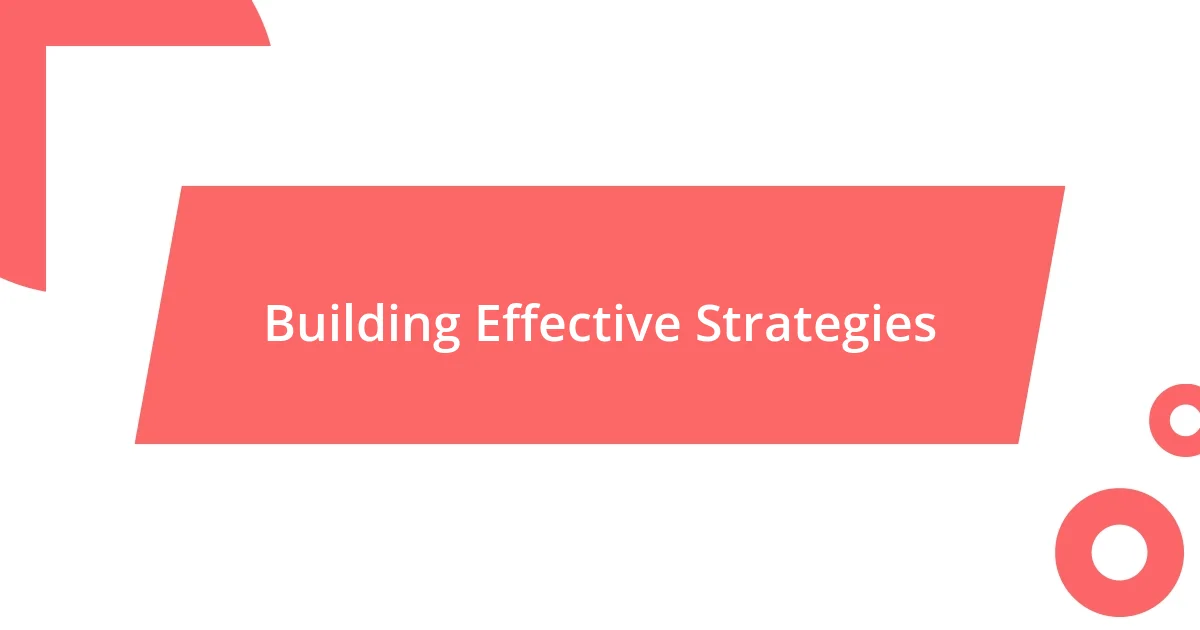
Building Effective Strategies
Building effective strategies in RPGs is crucial for maximizing your gaming experience. One approach I’ve found successful is focusing on synergy within the team. For instance, when I played with a group that included a tank, a healer, and a damage dealer, we could coordinate our skills to face tougher foes. It’s fascinating how establishing roles and tactics upfront can lead to smoother gameplay; have you felt that same rush when every piece falls into place during a battle?
Another strategy I employ is the continuous evaluation of my character’s abilities as the game progresses. Adapting your character’s skills to the evolving challenges can make a significant difference. I remember a session where my initial focus on offense became less effective, prompting me to retrain my character into a more supportive role. That flexibility not only saved the day but also allowed me to experience the game from a new perspective. Have you ever pivoted your strategy mid-campaign and found unexpected success?
Finally, I emphasize communication with my fellow players. Sharing insights about strategies, discussing encounters, and celebrating victories creates a more immersive experience. I cherish those moments when we brainstorm together after a tough battle, sharing laughter and ideas. Effective teamwork often hinges on open dialogue—what strategies have you found work best in your group? For me, the collaborative effort enriches not just gameplay but also builds lasting friendships around the table.
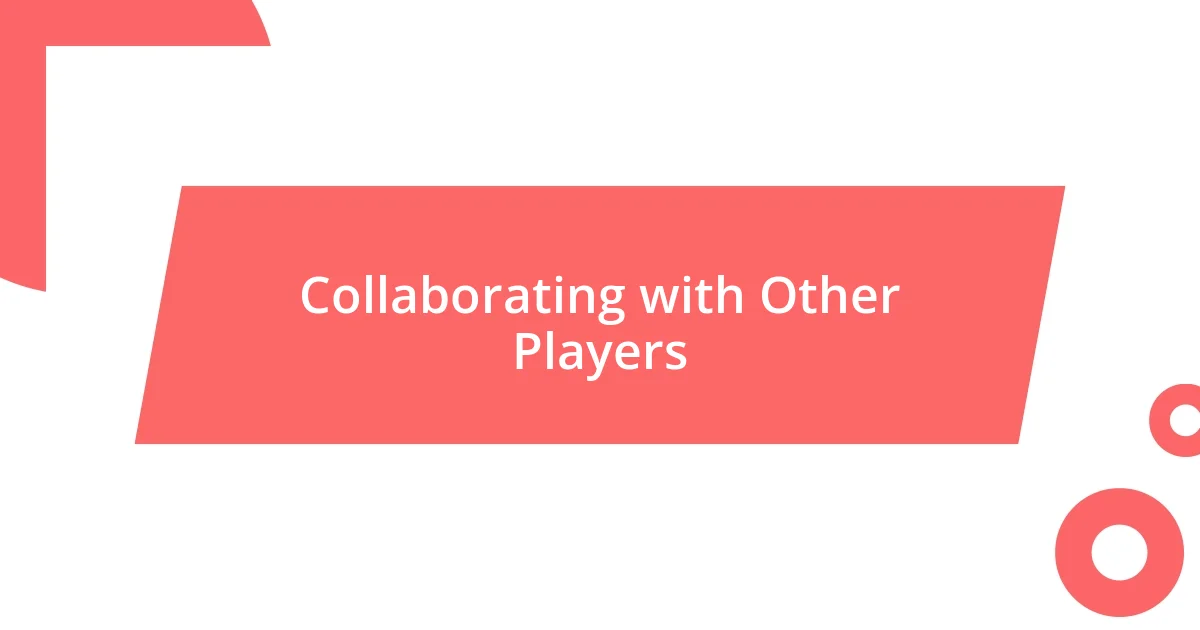
Collaborating with Other Players
Collaborating with other players can transform a regular RPG session into something truly unforgettable. There was a campaign I participated in where our party’s dynamics were incredible; we unified our character abilities and personal backstories into a seamless narrative. One moment stands out vividly—when my rogue and a wizard devised a plan to infiltrate a heavily guarded castle. The thrill of executing that plan flawlessly, with every player on the same page, was exhilarating. Have you felt that surge of excitement when collaboration leads to a remarkable outcome?
I also find that discussing character arcs and motivations fosters deeper connections among players. Once, I joined a table where everyone shared their characters’ journeys, revealing their ultimate goals and fears. This open exchange allowed us to weave together our stories, creating meaningful alliances and stakes in the narrative. It’s touching how vulnerable sharing your character’s struggles can be; it invites empathy and excitement. How often do you feel that your character’s success hinges on the efforts of your friends in the game?
Effective collaboration goes beyond just in-game strategies. I’ve experienced the joy of crafting major plot twists and dramatic moments as a group; it’s like being part of an evolving story that no one expected. In one game, my character unexpectedly sacrificed themselves to save another player’s character, a move that shocked everyone and deepened our bond. That moment wasn’t just about the game—it highlighted the trust we’ve built through collaboration, turning players into a gaming family. Have you ever made a choice in-game that created a lasting memory among your group? That’s where the true magic lies.
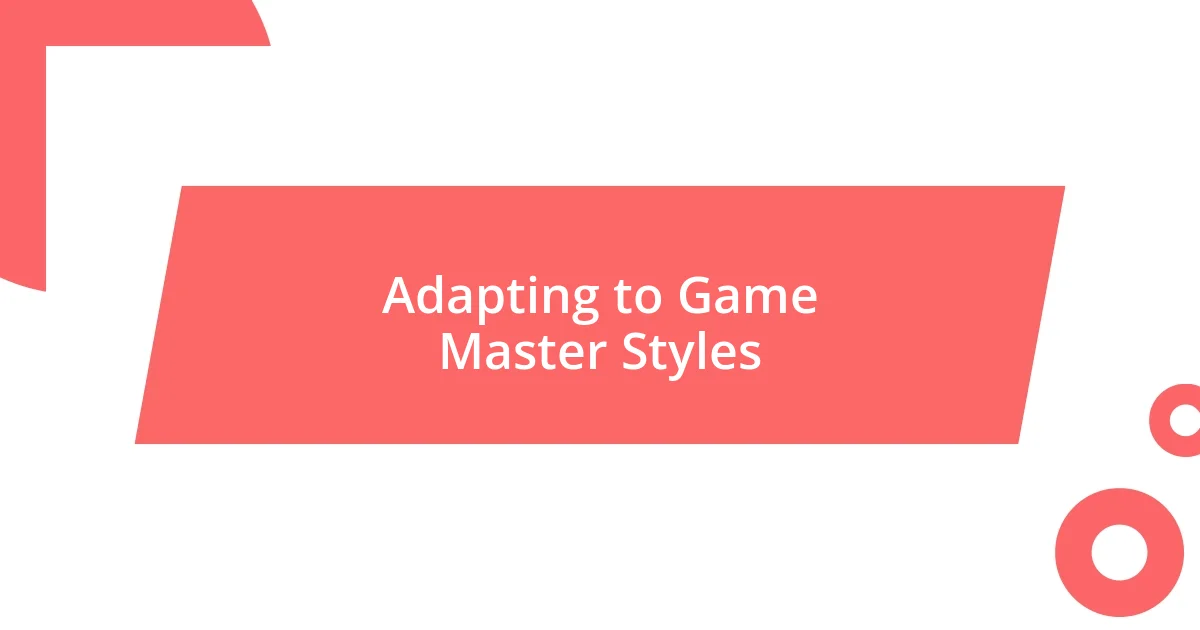
Adapting to Game Master Styles
Adapting to the varying styles of Game Masters can be a fascinating journey. I’ve encountered GMs who thrive on improvisation, creating spontaneous plot twists that keep everyone on their toes. In one session, we faced a situation where our meticulously planned escape route was suddenly blocked due to a GM’s clever twist; we had to think on our feet and forge an entirely new path. Have you ever experienced a moment where being flexible led to an unexpectedly thrilling encounter?
Conversely, I’ve played under GMs who prefer intricate world-building and detailed story arcs. In those campaigns, I have learned the importance of immersing myself in their meticulously crafted narratives. One memorable instance was when our GM introduced a beautifully woven backstory involving my character’s family ties to ancient lore. This depth encouraged me to embody my role more fully, enhancing both my experience and that of my fellow players. Do you find that connecting with your GM’s vision enriches your gameplay?
Ultimately, adapting to different GM styles challenges me to grow as a player. I recall a campaign where the GM emphasized character development heavily, pushing me to explore the emotional layers of my character. This emphasis not only led to some of the best role-playing moments I’ve experienced but also encouraged deep discussions with my fellow players about our characters’ traumas and triumphs. It made me realize how vital it is to be flexible and responsive to the storytelling approach of my GM. Have you ever felt a shift in your playstyle based on your GM’s unique flair?
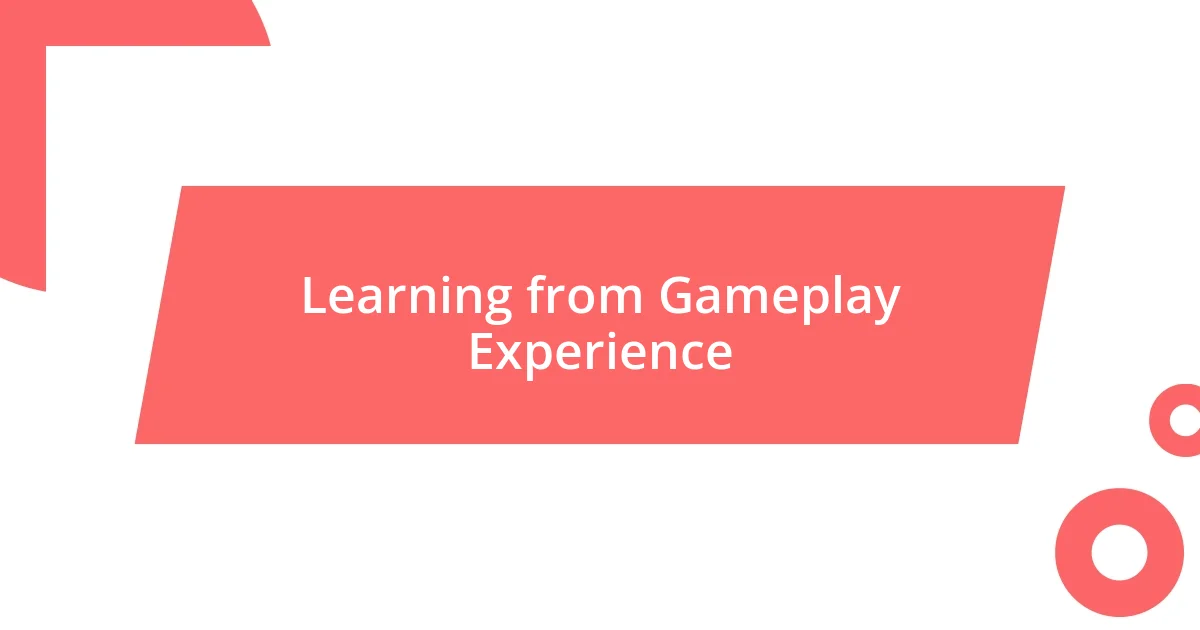
Learning from Gameplay Experience
Through my experiences in RPGs, I’ve come to appreciate how much I learn from my gameplay. Each session presents a fresh opportunity to analyze my decisions and interactions with others. For instance, during one campaign, I played a character who was overly cocky, and while it was fun at first, that attitude led to my downfall. It was a powerful lesson in humility—do you consider how your character traits might affect not just your journey but also your group dynamics?
I’ve discovered that reflecting on gameplay helps me refine my approach. In another game, I chose to play a healer, stepping into a support role I hadn’t embraced before. This shift opened my eyes to the importance of teamwork and the nuances of strategy. I realized how my actions could bolster my friends’, transforming the tide of battles. Have you ever tried something new in an RPG that changed your perspective on how you contribute?
Ultimately, I find that every choice carries weight, shaping both my character and my growth as a player. One striking moment for me was when I had to decide whether to save another character or go after the quest goal. That decision not only impacted the narrative but also illuminated my character’s values and my personal thoughts on loyalty. How often do you find that your gameplay experiences lead to revelations about yourself or your values?










